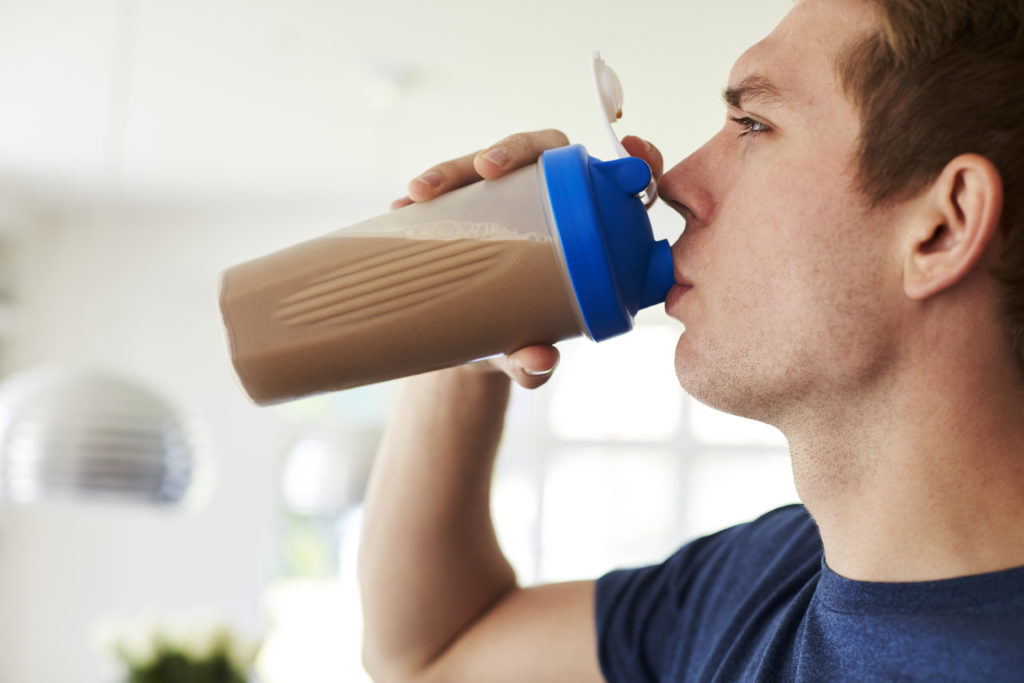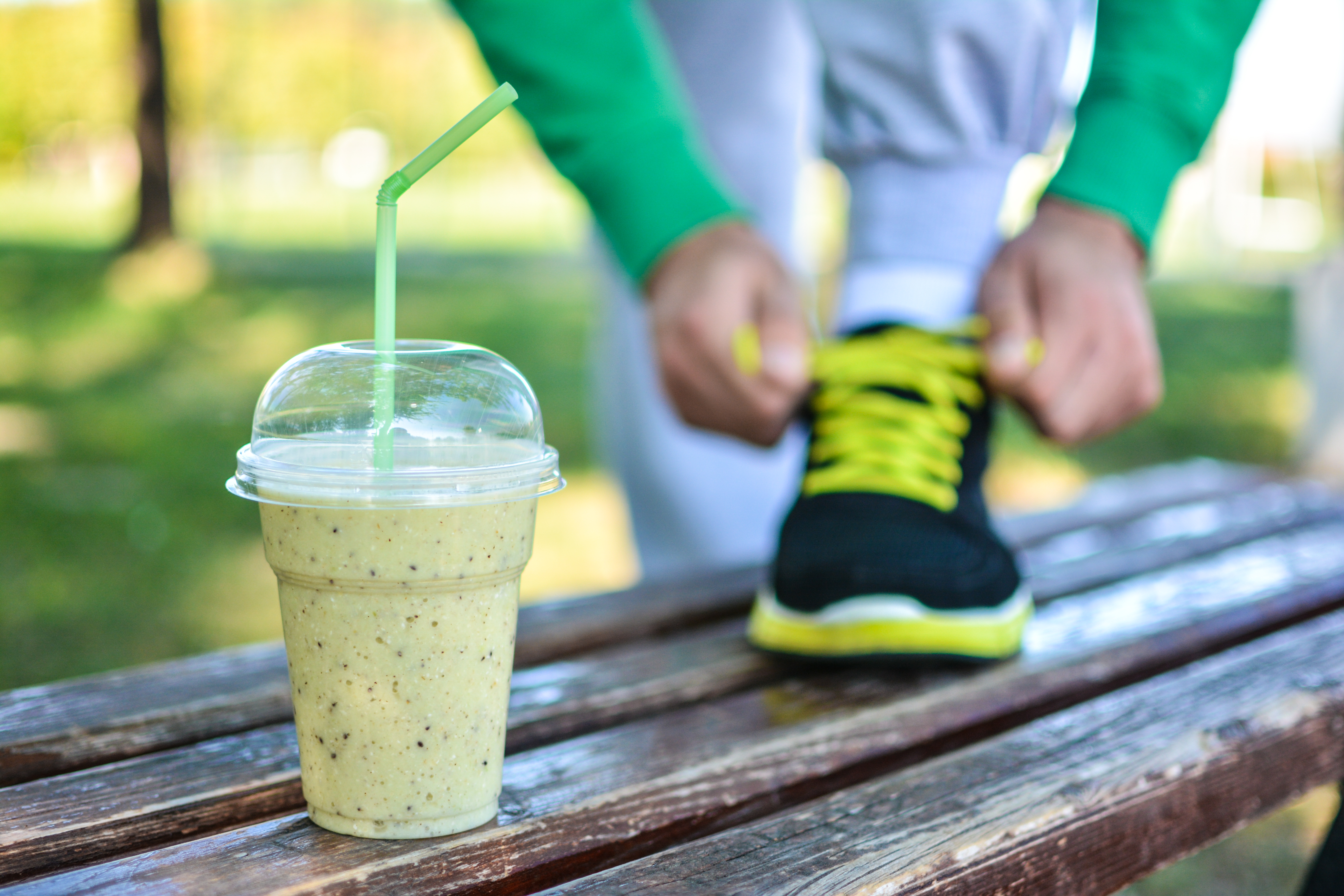
Energy bars
Energy bars come in many shapes and sizes but they usually contain the same ingredients: nutrient dense foods that can offer an energy boost as quickly as possible. Our DIY version contains 200 calories high in protein from two tablespoons of peanut butter, which will set you back around 10p. Bar-gain.
DIY version
Whiz 200g of granola in food processor until fine then stir in the 2 tbsp tahini, 2 tbsp peanut butter, 4 tbsp golden syrup, 2 tsp cocoa, 15g sesame seeds, 15g coconut, 2 tbsp whey powder, ½ tsp vanilla essence and 1 tbsp spirulina (if you’re feeling adventurous). Press the mixture into a tin and then cut into bars. Refrigerate for 2 hours until firm. Wrap bars individually in parchment paper.
Recovery drinks
Post-training you’ll be looking for something with at least two parts carbohydrate to one part protein: this will rehydrate you, start to restock your muscles’ glycogen stores and help repair microtears in muscular tissue. Chocolate milk hits the right ratio: a study in the journal Medicine & Science in Sports & Exercise found that drinking it after intense exercise allowed athletes to train for longer and with more power than during subsequent workouts.
DIY version
Blend 50ml low-fat natural yoghurt with an equal amount of skimmed milk, 2 tsps cocoa powder, 1 banana, a pinch of salt and a teaspoon of honey. This provides 220 calories, 15g protein and 35g carbs, comparable to a ready-mixed recovery shake. The fabled “window of opportunity” for optimum refuelling 15-30 minutes after training may have been disproved but it’s probably still best to get this down you as soon as possible to ensure the nutrients can get to work ASAP.
Electrolyte drinks
As you sweat to try to preserve a stable body temperature, you have to top up the fluids and hydration-regulating electrolytes you lose: a 12-stone man needs roughly 500ml of sports drink for every hour of aerobic exercise. And composition is all-important. The European Journal of Applied Physiology reports that marathon runners who drank either water or a 6.9% carb solution posted slower times than the men who drank a 5.5% concentrate. The latter group was also the only one able to keep to a consistent speed throughout the race. “During exercise, a non-pro will be aiming for an isotonic solution, that is, 5-8% carbs,” says White. “But sensitive stomachs might need even more dilute drinks, which is where homemade sports drinks come into their own.”
DIY version
Stir together 100ml full-sugar squash with 400ml water and a pinch of salt. Chill before drinking. This provides the same sodium as a conventional sports drink for a fraction of the cost, with 58 calories compared to 140. But as White points out, the taste won’t compare to a branded sports drink, which will also often contain added vitamins and a wider range of electrolytes including potassium and magnesium.






